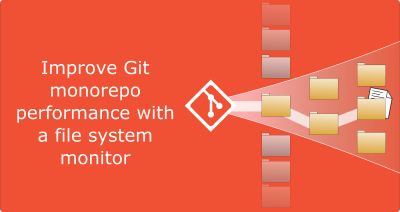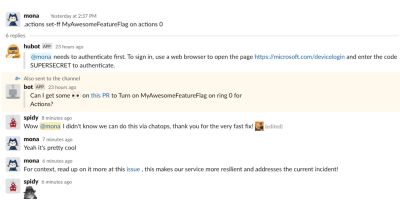
How GitHub reduced testing time for iOS apps with new runner features
Learn how GitHub used macOS and Apple Silicon runners for GitHub Actions to build, test, and deploy our iOS app faster.

From maintaining our robust CI/CD tooling to scaling our databases and ensuring our tools are kept up-to-date, maintaining the infrastructure of the world’s leading AI-powered developer platform is a big job. This is how we do it.

Learn how GitHub used macOS and Apple Silicon runners for GitHub Actions to build, test, and deploy our iOS app faster.


GitHub uses MySQL to store vast amounts of relational data. This is the story of how we seamlessly upgraded our production fleet to MySQL 8.0.

Recently, we’ve been working to make our CI experience better by leveraging the newly released GitHub feature, Actions larger runners, to run our CI.

GitHub switched to performing merges and rebases using merge-ort. Come behind the scenes to see why and how we made this change.

How much does it really cost to buy more powerful cloud compute resources for development work? A lot less than you think.

This post is the second part in a series about ActiveRecord::Encryption that shows how GitHub upgrades previously encrypted and unencrypted columns to ActiveRecord::Encryption.

You may know that GitHub encrypts your source code at rest, but you may not have known that we encrypt sensitive database columns as well. Read about our column encryption strategy and our decision to adopt the Rails column encryption standard.

Monorepo performance can suffer due to the sheer number of files in your working directory. Git’s new builtin file system monitor makes it easy to speed up monorepo performance.

Discover how GitHub thinks about browser support, look at usage patterns, and learn about the tools we use to make sure our customers are getting the best experience.

From automating builds and releases to taking care of large-scale regression testing, here are a few ways we use GitHub Actions to build GitHub.

Learn how the GitHub Mobile Team automates their release process with GitHub Actions.

You can multiply the impact of your domain experts by building their common workflows into ChatOps.

In 2019, to meet GitHub’s growth and availability challenges, we set a plan in motion to improve our tooling and ability to partition relational databases.

Over the past months, we’ve left our macOS model behind and moved to Codespaces for the majority of GitHub.com development.

Over the years, GitHub engineers have developed many ways to observe how our systems behave. We mostly make use of statsd for metrics, the syslog format for plain text logs…

At GitHub, we’re continually working to improve existing features and shipping new ones all the time. From our launch of GitHub Discussions to the release of manual approvals for GitHub…

About a year ago, we migrated an old rate limiter in order to serve more traffic and accommodate a more resilient platform architecture. We adopted a replicated Redis backend with…

Using deferred compliance in GitHub’s CI process to improve developer productivity.

An introduction to our blog series on GitHub’s investments in technical excellence.
Build what’s next on GitHub, the place for anyone from anywhere to build anything.